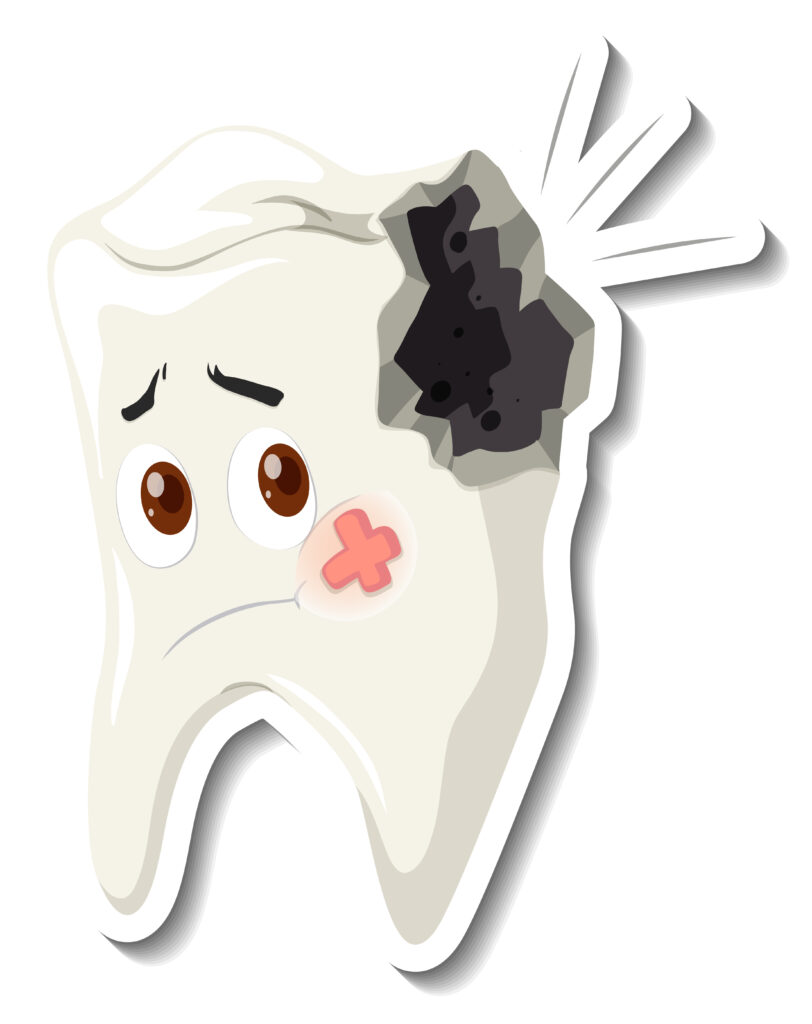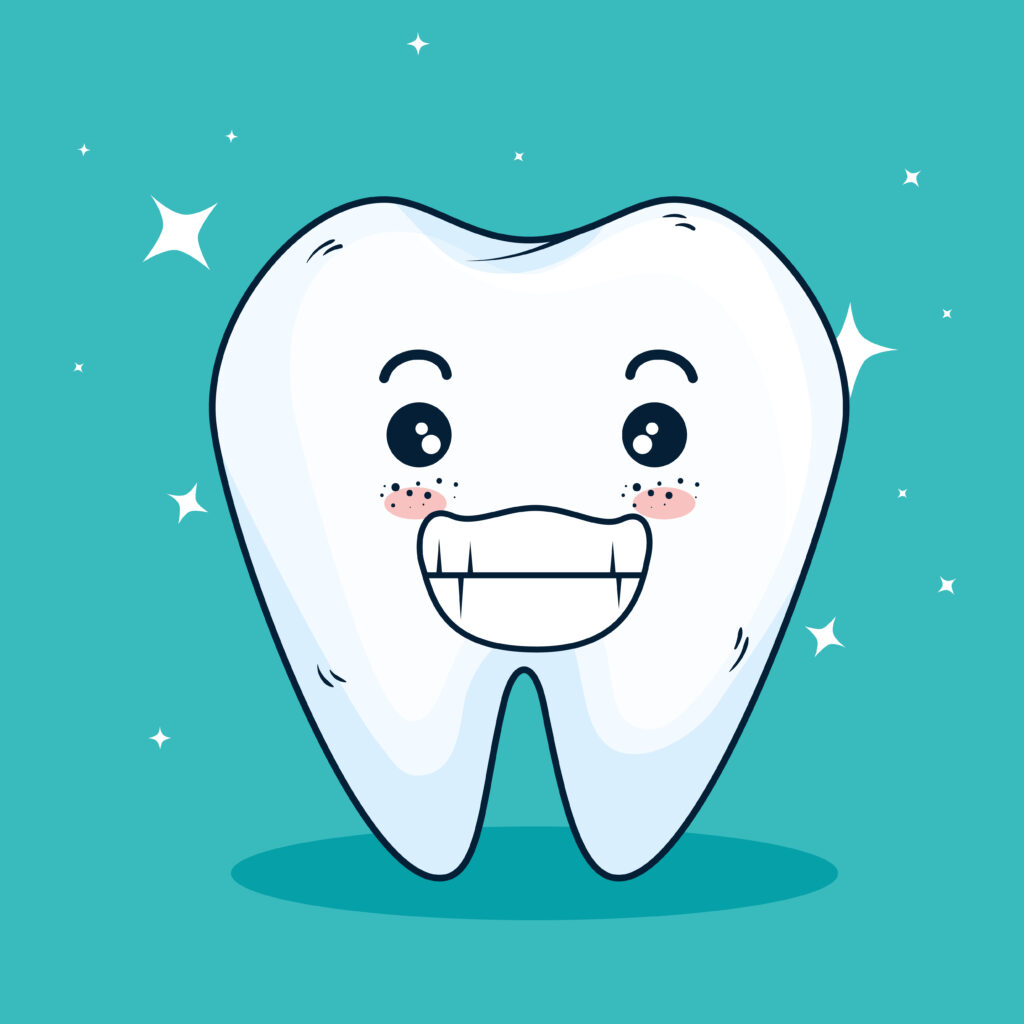Dental cavities, those pesky little things, have a knack for affecting people from all walks of life. No matter how diligently we brush and floss, these unwelcome visitors sometimes make an appearance.
In this article, we’ll dive deep into the world of dental cavities, exploring their causes, how to prevent them, and what to do if you find yourself facing one.
So, let’s take a journey through the world of cavities and learn how to keep our smiles in tip-top shape.

Image by pvproductions on Freepik
Understanding Dental Cavities
Before we get into the nitty-gritty of cavities, let’s break down what they actually are. A dental cavity is like a tiny hole or pit in your tooth, caused by a tag team of factors that include bacteria, sugar, and time. The process leading to a cavity is a bit of a rollercoaster.
- The Guardian: Dental Enamel Think of your tooth’s outer shell as its guardian—dental enamel. It’s strong, but not invincible. Under certain conditions, it can start to wear down.
- The Invasion: Demineralization and Plaque When you munch on carbs, especially sugary stuff, oral bacteria have a feast. They turn these goodies into acids that can wear away enamel, leaving behind a sticky, bacteria-filled film called dental plaque.
- The Culprit: Progression to Cavity As plaque-loving bacteria continue their acid-producing party, they chew through enamel, eventually creating a cavity. If you don’t step in, cavities can go deeper into your tooth, causing even more trouble.

Image by brgfx on Freepik
Why Do Cavities Happen?
Cavities aren’t the work of a single villain; they’re more like a team effort. Several factors come into play, and understanding them can help us prevent these little troublemakers.
- Team Bacteria: The Oral Microbiota Meet the oral bacteria, including not-so-friendly characters like Streptococcus mutans. They’re the ones responsible for breaking down sugars, creating acids, and causing trouble.
- Sugar’s Role: The Sweet Connection Sugary snacks and drinks are like an open invitation to these bacteria. The more sugary stuff you consume, the more fuel you give them to attack your teeth.
- The Hygiene Hero: Good Oral Care Brushing and flossing are your best friends when it comes to cavity prevention. They help remove plaque and food particles, keeping those bacteria in check.
- Dry Mouth Dilemma: Reduced Saliva Saliva is your mouth’s natural superhero, neutralizing acids and protecting your teeth. But conditions like dry mouth can reduce saliva flow, making your teeth more vulnerable.
- Genetic Influence: Family Matters Your genes can play a role in cavity susceptibility. Some folks may have genetic traits that make their enamel weaker or their mouths more welcoming to bacteria.
How to Keep Cavities at Bay
Preventing cavities takes a bit of effort, but it’s worth it to keep your smile intact. Here are some practical tips to help you stay cavity-free:
- Be a Dental Detective Get into the habit of regularly inspecting your teeth and gums for any unusual spots or changes. Early detection is key to avoiding bigger problems.
- The Brushing Ballet Brush your teeth at least twice a day with fluoride toothpaste. Make it a gentle dance, though; don’t scrub too hard, as it can harm your enamel.
- The Magic of Fluoride Fluoride is like a knight in shining armor for your teeth. It strengthens enamel, making it more resistant to acid attacks. Make sure your toothpaste contains fluoride, and consider fluoride treatments at your dentist’s office.
- Balancing Act: Diet Matters Cut back on sugary snacks and drinks. Opt for a balanced diet rich in fruits, veggies, and dairy to provide essential nutrients for strong teeth.
- Dental Guardians: Sealants Dental sealants are like protective shields for your molars. They help keep plaque and acids away, reducing the risk of cavities in those hard-to-reach spots.
- The Dentist’s Wisdom Don’t skip your regular dental check-ups. Dentists can spot early signs of cavities and provide guidance on maintaining oral health.
- Sweet Substitute: Xylitol Xylitol, a natural sugar substitute, can help fend off cavity-causing bacteria. It also promotes saliva production, which is excellent for your teeth.
Handling Cavities When They Strike
Despite your best efforts, cavities can still happen. When they do, it’s essential to take action promptly to prevent further damage and discomfort.
- Filling in the Gaps: Dental Fillings Dental fillings are like little superhero patches for your teeth. Dentists remove the decayed part and fill the cavity with materials like amalgam or composite resin.
- Crowned for Protection: Dental Crowns For more extensive cavities that weaken your tooth’s structure, dental crowns come to the rescue. They’re custom-made caps that cover and protect the remaining tooth.
- Root Canal Rescue If a cavity goes deep into your tooth and reaches the pulp, it can lead to severe pain and infection. Root canal therapy involves removing the infected pulp and sealing the tooth to prevent further trouble.
- The Last Resort: Tooth Extraction In cases where a tooth is too damaged to be saved, extraction may be necessary. Your dentist will discuss options for tooth replacement, like dental implants or bridges.
- Post-Treatment Care After cavity treatment, maintain good oral hygiene practices to prevent future cavities and keep your treated tooth in good shape.
Special Considerations
Certain groups and situations need extra attention when it comes to cavity prevention:
- Kids’ Corner: Pediatric Dentistry Children are more vulnerable to cavities, especially early childhood caries (ECC). Parents and caregivers should ensure kids receive regular dental care and start building healthy oral hygiene habits early on.
- Aging Gracefully: Seniors’ Smiles As we age, our oral health needs evolve. Changes in dental health, medications, and medical conditions can increase cavity risks. Regular dental check-ups are vital for older adults.
- Medical Conditions and Meds Some medical conditions and medications can affect your oral health, making you more cavity-prone. If you have conditions like diabetes or take meds that cause dry mouth, take extra precautions.

Image by brgfx on Freepik
Dental cavities might be a common dental woe, but armed with knowledge and a bit of effort, you can keep them at bay. Remember, it’s all about the basics: good oral hygiene, a balanced diet, and regular dental check-ups. So, go ahead, embrace your inner dental detective, and keep that smile shining brightly for years to come.
Image by brgfx on Freepik

